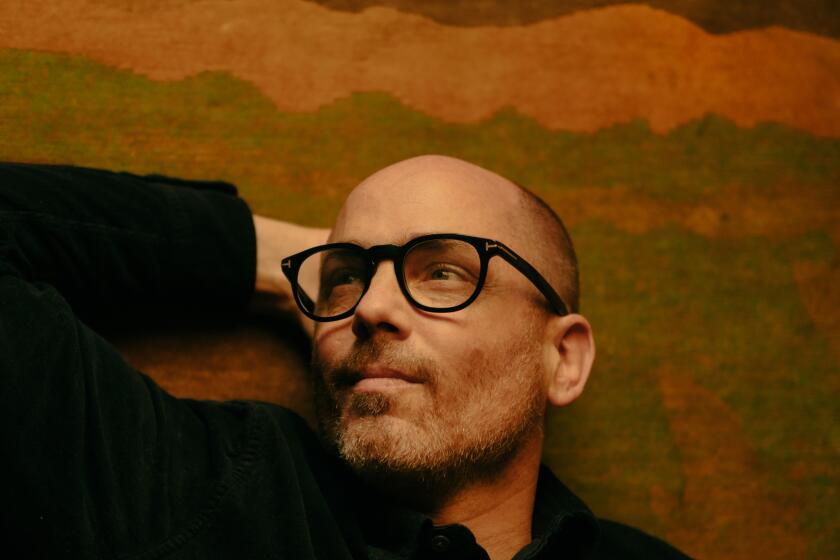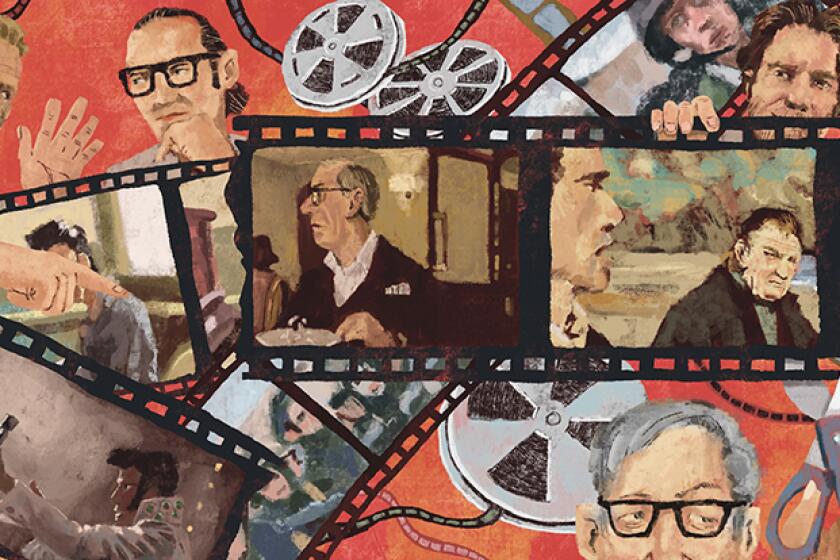The ‘All Quiet’ makeup team plays in the mud -- and gets a bunch of dirty looks
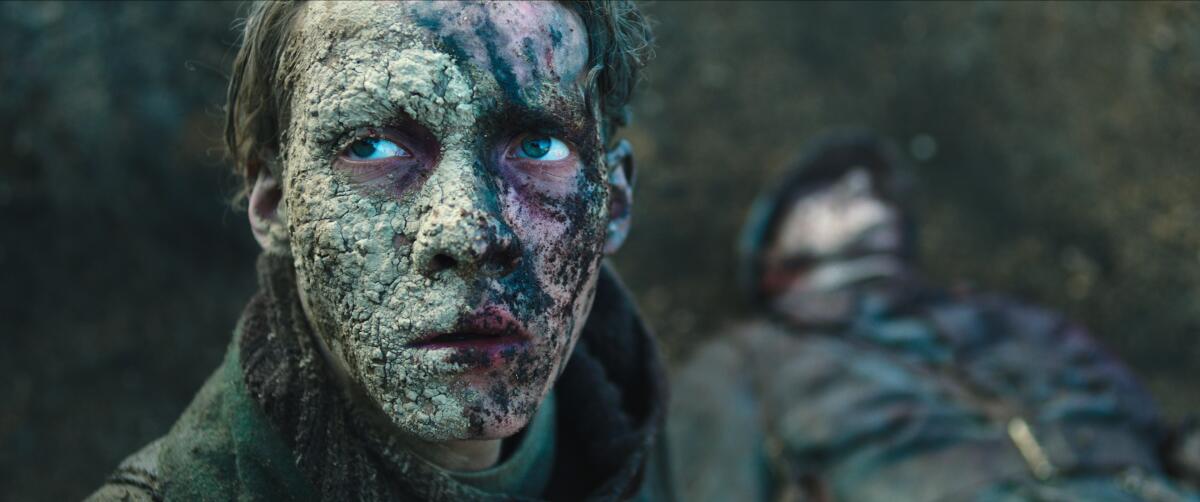
- Share via
Heike Merker never considered working on a war movie until Edward Berger’s German adaptation of the World War I drama “All Quiet on the Western Front” came along. The hair and makeup designer, best known for her work on such films as “Crazy Rich Asians” and “The Matrix Resurrections,” was immediately compelled both by the project itself and the possibility of collaborating with her costume designer friend Lisy Christl.
“I had the feeling it was such a good group, so it was like, ‘Well, let’s just do it,’” Merker recalls, speaking over Zoom from Berlin. “I have done so many different movies, and this just felt like another subject.”
To prepare for the film, which shot in Prague last spring, Merker did extensive research. She watched previous iterations of the story, which is based on Erich Maria Remarque’s 1929 novel, as well as other movies set during the time period. Her biggest inspiration came from documentaries, particularly Peter Jackson’s 2018 work “They Shall Not Grow Old,” which compiled archival footage from the war.
“The war machine became a big theme, how it eats up these kids,” the director says of his film. “How the machine recycles life, and life becomes meaningless.”
“This one basically opened so many doors for me, and I finally had the right material,” Merker says. “What I’d seen was unbelievable. I screenshot the whole movie for reference because it was so good. Once I had that, I started testing and prepping the actual [makeup] looks.”
The film follows a young soldier, Paul Bäumer (Felix Kammerer), over the course of the war, with the majority of the scenes taking place in the trenches and on battlefields. The reality was filthy and wet, which means Paul and his fellow soldiers spend most of the film covered in layers of dirt, mud and blood. Merker couldn’t use actual mud, because it would harm the actors’ skin, so she looked for stage makeup options, bought Dead Sea facial masks and created new concoctions out of matcha powder and macadamia powder.
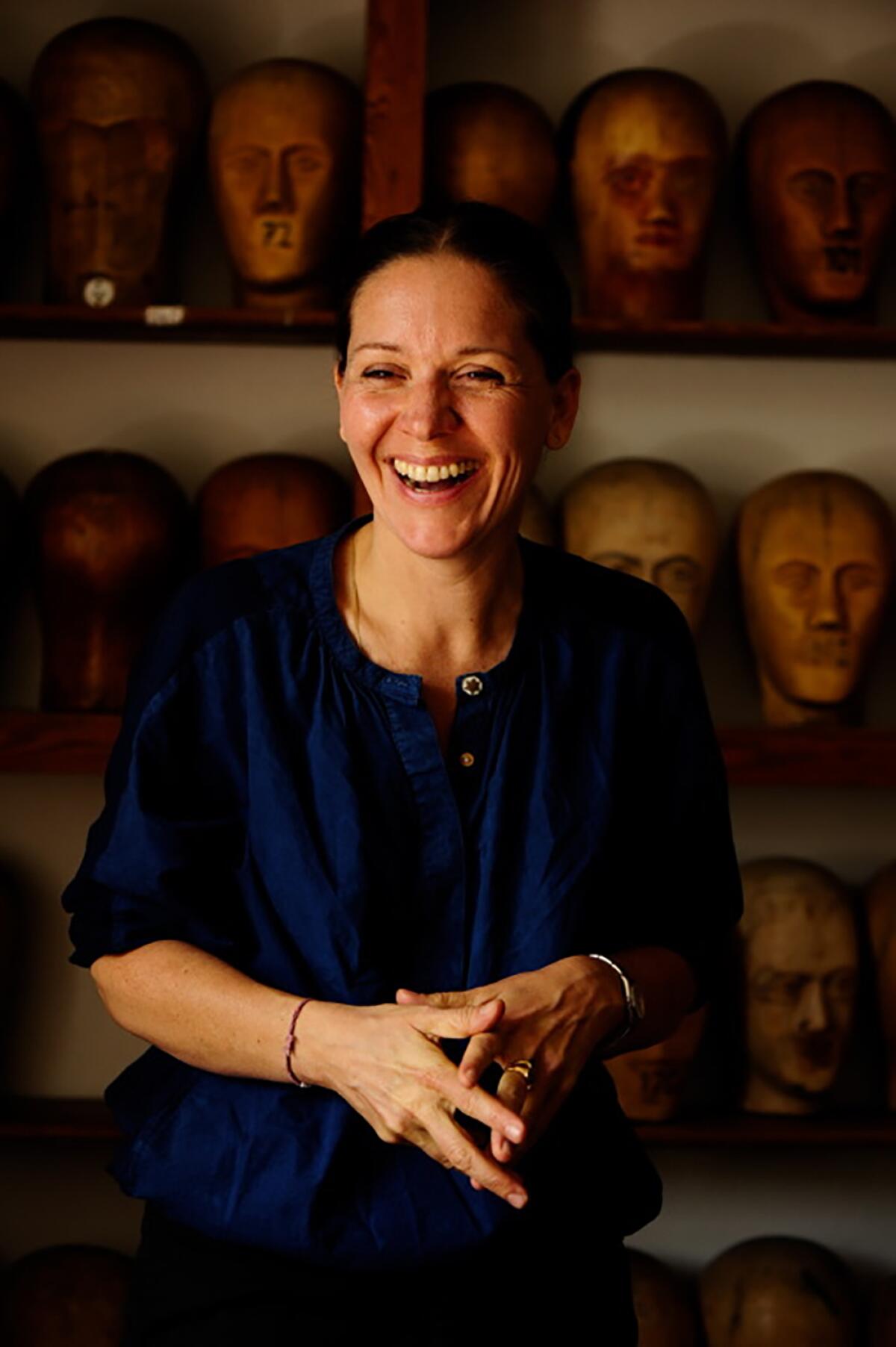
“I started with mud and dirt products that already exist in the makeup world and tested how to layer them up,” Merker says. “What does the color do if it rains? Is the color coming off? How do the layers look? Then it was like, ‘OK, so those colors we have are not enough. We need more colors!’ I created a color range in mud in every consistency, from very thin liquid to a slimy version to a more muddy clay. We had about 10 different colors, each with several different consistencies.”
The mud was applied to the actors’ faces, hair, necks, hands and any other body part that showed during a particular scene. Although the lead cast spent an hour or two in hair and makeup each morning before shooting, Merker continued applying and reapplying the mud throughout the day. She was on set next to the camera during every shot to ensure continuity in the looks, which was a massive challenge, since the movie was not filmed chronologically. She and Berger also had spray bottles filled with fake blood at the ready during battle scenes. But for all the chaos of the war sequences, Merker ultimately was very purposeful in her application of the mud and dirt.
“I always treated the whole movie like a painting,” she says. “Sometimes when you try to replicate something from a picture, like when you have a mustache that’s very extreme, and you put it in a movie, it looks horrible and fake. There’s a way to look at the reality but not to copy it. You need to put something else on top or take something else away.”
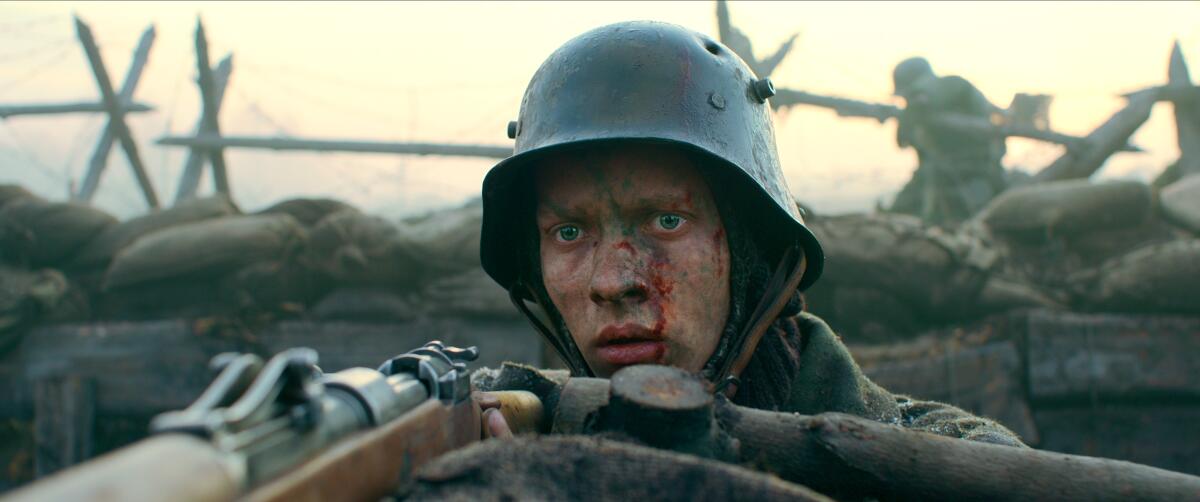
In one particular scene, as Paul confronts and ultimately kills a French soldier, Merker used the mud to convey the dual sense of the characters as both heroes and villains. The dried gray mud was caked across half his face, creating two literal faces.
“It represented the situation with those two people,” Merker says. “It became something very special when we decided to add that extreme elephant-like layer on top of layer on top of layer. With the camera movement and him looking up, it created such a wonderful picture.”
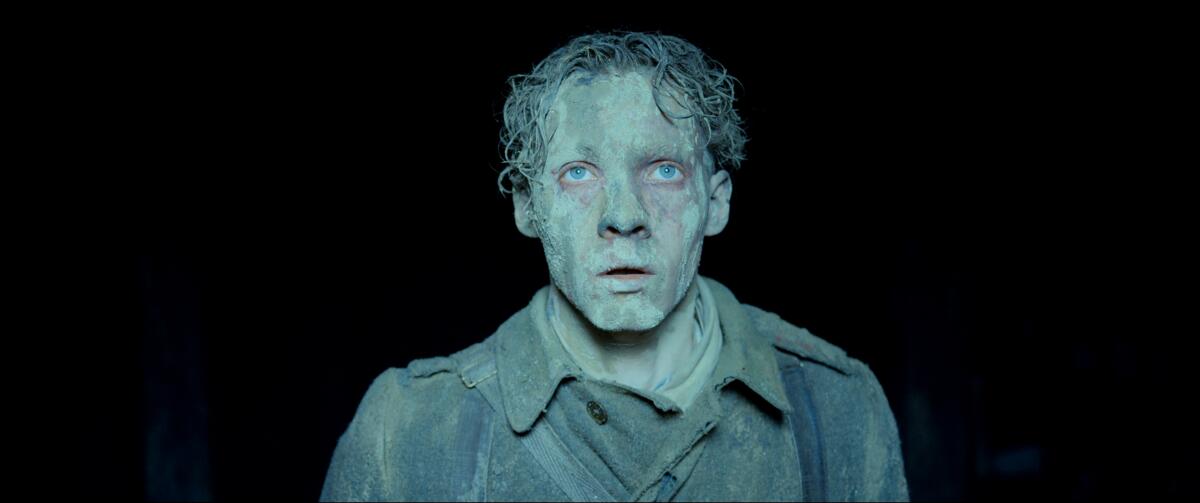
A few of the film’s characters, such as Daniel Brühl’s Matthias Erzberger, are based on real historical figures, but Merker didn’t want to get too caught up in literal replicas. Instead, she balanced real details with dramatic ones. With Brühl, for example, Merker recreated Erzberger’s actual hairstyle and mustache but created sweat lines on his neck and hands to emphasize the character’s nervous position. Brühl also pulled his head into his collar to create the sense of a double chin without prosthetics.
“There are some angles where he looked so not like Daniel,” Merker says. “It’s really interesting. We used every little element to give [depth] to that character.”
‘Elvis’ cut a long story from the King of Rock ‘n’ Roll; ‘Banshees’ tightened a darkly comic moment. Even good scenes can get clipped.
For Merker, each nomination has been an unexpected surprise. She’s uncertain why audiences have been so compelled by the film, but she suspects it’s because it’s a war movie that is resolutely antiwar.
“There is no hero, really,” she says. “It’s not that they’re killing someone and they feel proud about it. The perspective is different. And with the Ukraine war, maybe it brings you into the situation in a way that’s current. It is a war movie, but it’s also very poetic.”
More to Read
From the Oscars to the Emmys.
Get the Envelope newsletter for exclusive awards season coverage, behind-the-scenes stories from the Envelope podcast and columnist Glenn Whipp’s must-read analysis.
You may occasionally receive promotional content from the Los Angeles Times.
